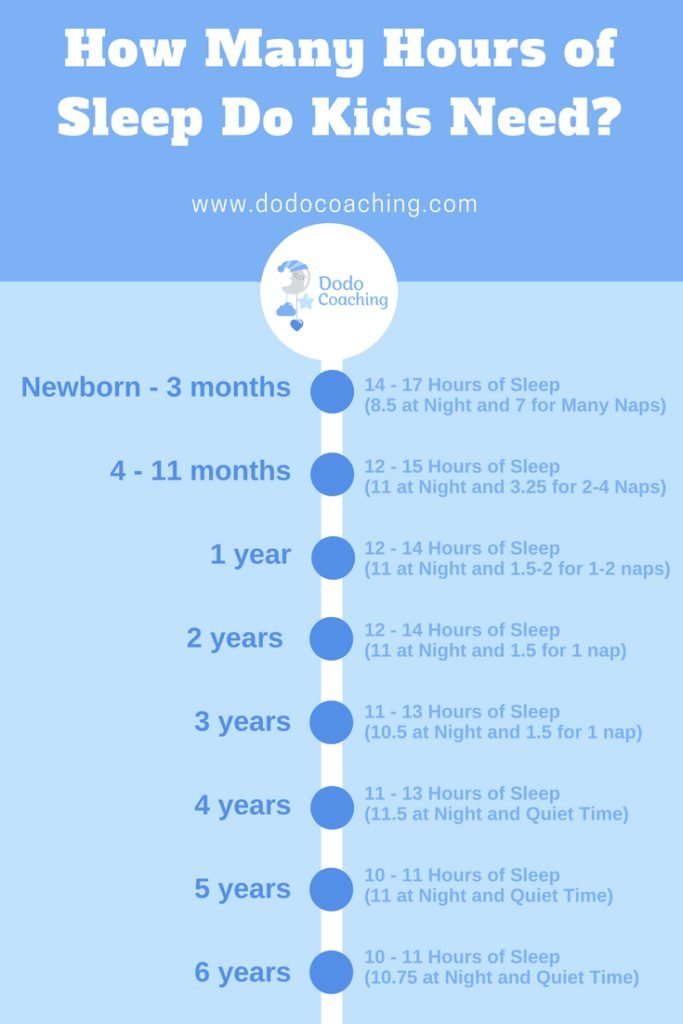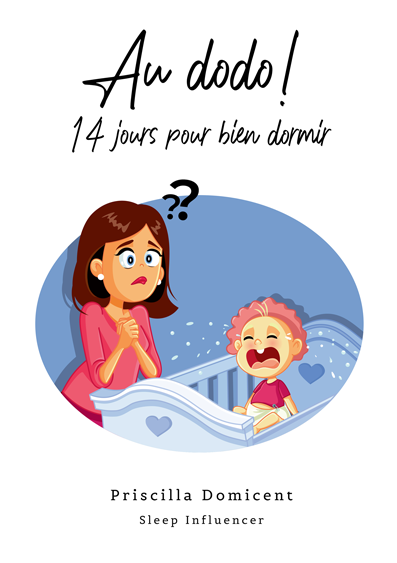There are so many parenting tips that we hear about hundreds of times and over which debates are incessant. “Never wake a sleeping baby” is probably at the top of that parenting tips list, together with “Keep her up longer and she will stay asleep longer in the morning”, another “brilliant” piece of sleep wisdom.
I know, as a parent, just the thought of having to wake your sleeping baby is already heartbreaking. When you see her peacefully resting, you wonder if there is anything cuter in life than that little angel’s face. So, which crazy reasons could bring you to wake your sleeping baby?
Waking a sleeping baby sounds unnatural to you? Have doctors not said that sleep is essential for a baby’s development? Why should you want to wake her after having gone through all the struggle to put her down to sleep?
“Never waking a sleeping baby” is a particularly persistent myth passed on from one generation to the next. The time has come to (re)establish the truth. I feel that my job, as a Certified Sleep Coach, is to tell you that there are circumstances that bring you to wake up your sleeping baby. And, for each one of them, there is a sound reason to proceed as such.

1. Eliminate the day / night confusion
All newborns experience a day / night confusion. New parents are unpleasantly surprised when their infant is sleeping peacefully during the day and is wide awake at night. If only babies came out of the womb understanding that nighttime is for sleeping! Unfortunately, it would be too good to be true and there is no quick fix for the day / night confusion.
Until their sixth week of life, they do not perceive the difference between these two periods. In addition, their biological clock (or circadian rhythm) is not yet set to 24 hours. It is only during the second month that they begin to produce melatonin. This sleep hormone secretes in the absence of light and its production peaks around 2:00 to 3:00 AM. Melatonin indicates that the night has arrived and that the body can relax. From this age, it is recommended to do different activities to help your child to distinguish the day from the night.
During the day :
- Leave the curtains open and the lights on during the waking moments.
- Go outside to enjoy the natural light. Sunlight helps regulate children’s internal clock and makes them understand that daytime is for being awake.
- Feed her regularly during the day. If she is not being fed enough or sleeps for too long during the daytime, she will wake up hungry and won’t be tired at night.
At night :
- Do quiet and relaxing activities in the bedroom, under dim light, before going to sleep.
- Make sure the room is totally dark, dull, free of stimulations and quiet (or with a white noise machine) when she starts her night.
- Keep night feedings brief and boring. Feed her under a dim light. Do not skip a feeding, hoping that she will sleep longer stretches. If you have any doubts about night feedings, talk to your pediatrician.
- Change her diaper quickly in the bedroom while keeping the luminosity as low as possible.
- Put your baby right back to bed after having fed her and / or changed the diaper.
2. Offer night feedings
In the first few weeks, parents have the feeling that all their baby can do is eat, sleep and fill up diapers. A baby needs to eat – what seems like constantly – every 2 to 3 hours.
What should you do if your little one sleeps more than 3 hours? First of all, always follow your pediatrician’s advice who will certainly give you feeding instructions according to your child’s weight and growth curve. As long as your baby is growing and healthy, the doctor will probably tell you that you don’t need to wake your sleeping baby on a regular schedule after a couple weeks old, or at least once she bounced back to her initial birth weight.
However, you could be told to gently wake her for a feeding at fixed intervals, rather than on demand. (e.g. in the case of a premature baby). And that’s not only okay but it’s important to proceed as such in order to put on a healthy amount of weight. In such instance, it is possible that her sleep pattern gets disrupted and she might not have the greatest appetite when half awake. If you just need to do one dream feed, wake her up around 11:00 PM. At that time, most babies are hungry enough to take the food and sufficiently tired to drift right back to sleep.
If you have been advised to wake your infant every 3 hours, try alternating with your partner or other caregivers during the night so that you get 6 hours of sleep from time to time. Getting at least 5 or 6 hours of uninterrupted nighttime sleep is essential to treat and potentially lower the risk of postpartum depression.
Related post: Understanding Postpartum Depression | My Exclusive Interview with Dr. Shosh
Once a newborn has regained her birth weight (weight loss is usually around 7% to 10%) or has reached a normal weight, it should be fine to let her sleep as long as she wants at night without waking her to feed.
If you are breastfeeding, you may want to schedule an appointment with a lactation specialist if you are uncertain about the amount of breastmilk needed by your baby and the frequency of the feedings.
3. Put your baby drowsy but awake in bed
Putting your child « drowsy but awake » in bed contributes to her sleep learning process. After the second month, you should try to put her in bed drowsy but awake at least once a day.
“Drowsy but awake” means that she knows who is putting her in bed and where she is before falling asleep. This way, she will not panic when waking up and wonder: “How on earth did I end up here!” The best time of the day to initiate this sleep coaching approach is the morning nap. If she has fallen asleep during the nap routine, wake her gently before putting in the bed. If she does not like this learning attempt, comfort her in your arms. Try the experience once a day, day after day.
After she has mastered the morning nap, put her also down drowsy but awake before the afternoon nap and at bedtime.
It’s actually really smart to wake your baby a tiny bit when you place her down to sleep. This technique will teach her that she does not need your presence to fall asleep, even when waking up in the middle of the night. She will know how to fall asleep without being in your arms or sucking on a breast or bottle. As a result, she will develop very early on self-soothing skills.
4. Keep up with the sleep schedule
After 3 to 4 months, you will probably notice that your child’s sleep starts to consolidate. Her sleep cues and rhythms should then be easy to identify; a baby tracker is especially useful to extract such valuable information.
To maintain her natural rhythm, you will want to keep naps within a certain range, especially when she is benefitting from 2 to 3 naps. Here are some recommendations to follow that could make you wake up your baby when napping (and save the long sleep stretches for at night):
- The morning nap should start to fall into place around week 12 and last about 60 to 90 minutes. It should not last too much longer. Otherwise, your little one might struggle to fall asleep in the afternoon. When babies are on a solid 2-nap schedule, you may need to limit the first nap to 1.5 hours so that it does not become a battle to get your child down for her second nap.
- Several weeks after the morning nap has fallen into place, the afternoon nap should become more consistent in time and length. This nap should not last longer than 2 hours. Do not let too much time elapse between the end of the morning nap and the start of the afternoon one. Watch both the clock and your baby’s sleep cues.
- A third late-afternoon nap (or cat nap) can be shorter; 45 to 60 minutes depending on the quality and quantity of the earlier naps.
Be aware that some babies have higher sleep needs than others. Since each child is unique, there is no universal schedule applicable. Keeping a baby tracker will help you to discover your little one’s natural sleep patterns, sleep cues and estimate the amount of daytime sleep needed.
Related Post: 6 Reasons Why a Baby Tracker Is Essential
Some parents have told me that they need few hours of sleep and think that their offspring is identical. However, every child, without exception, needs a lot of rest to develop well.
When it comes to sleep, one cannot compare the needs of children with adults. As a parent, we tend to think that if a child does not take naps, she will recover during the night the hours she failed to get during the day, and thus sleep longer in the morning. In fact, sleep begets sleep for the Mini Me’s. The more baby sleeps during the day (within a limit though – see next paragraph), the longer and better she will sleep at night. It may sound illogical but it is the simple truth. In fact, there is a higher chance that a child wakes up before 6:00 AM when she is nap deprived and has a late bedtime.
Related Post: Why Does My Child Wake Up So Early?
5. Avoid interference with bedtime
Napping all day and not sleeping at night is great for the baby but unpleasant for the parents. There is an absolute correlation between the length of the daytime naps and the quantity and quality of the nighttime sleep. Too little or too much sleep during the day impacts the baby’s night.

“Keep your baby longer awake in the evening so that she wakes up later in the morning” is another sleep myth. The ideal bedtime is to be scheduled between 6:00 PM and 8:00 PM. Prior to this time interval, you may experience an early morning wake-up call the next day since children normally sleep 11 to 12 hours at night. If you keep your little angel up after 8:00 PM, you take the risk of getting her exhausted. She would then be too excited to fall asleep.
Protecting nighttime sleep at all costs is essential in order to guarantee the 11 to 12 hours of rest. So, there are 2 things to keep in mind:
- Avoid that the last nap runs too late in the day, encroaching on the nighttime sleep territory. If the beginning of the night gets delayed because of a late prolonged nap, the consequences can be unpleasant: difficulties to fall asleep, insufficient nighttime sleep, nightmares and an early wake-up the next day (before 6:00 AM). Waking baby from her last nap to protect bedtime is thus inevitable. Consider 3 to 4 hours as being a reasonable time interval between the last nap and the beginning of the nighttime sleep.
- To make sure your little one is not overtired at night, there can be no more than 4 to 5 hours between the end of her afternoon nap and the beginning of the night.
Exceptions to the rule
Without a doubt, sleep rules can go out the window when your baby is sick. Like adults, she might need a little more sleep while sickness kicks her system. Your goal should be to keep her as comfortable and well-rested as possible. However, try to avoid undoing all the awesome sleep work achieved so far. Do not let your weakened little one depend on (new) negative sleep associates for too long.
How to wake up your baby?
If your baby is adorably snoozing when time has come for you to bring her back into the wakeful world, try the following gentle and slow methods:
- Make some noise outside her bedroom
- Open the bedroom door and let in some light
- Gently pat her back
- Give her little kisses
- Sing a song or turn on the music
- Turn off the white noise machine
- After a nap, turn on the lights in the room or open the shades and leave the room. This is what gentle sleep coaches call a “dramatic wake up”. For the night feedings, turn on a dim light, stay in her room and put her back in bed as soon as possible.
Once your baby wakes from her naps, give her the time and space to really rouse from her sleep. If she starts complaining, give her the comfort and soothing she asks for.
When you’re in doubt, and your baby is sleeping too long, go ahead and try waking her. See what works best for you (the parents) and her. I fully understand you if just the thought of having to wake your sleeping baby still makes you feel awful. It is true that your little one will not welcome you with a big smile when taken away from Morpheus’ arms.
If you respect the recommended hours of sleep and the number of naps and feedings, you will quickly find out that your baby won’t protest much at bedtime and quickly learn to fall and stay asleep on her own. Then and only then, you will probably fully understand that “you should never wake a sleeping baby” is a myth!
If you would like to get more information on how to improve the quality and/or the quantity of your child’s sleep (and yours at the same time), do not hesitate to schedule a 15-minute preliminary consultation. It is a totally FREE & NON-BINDING offer!









